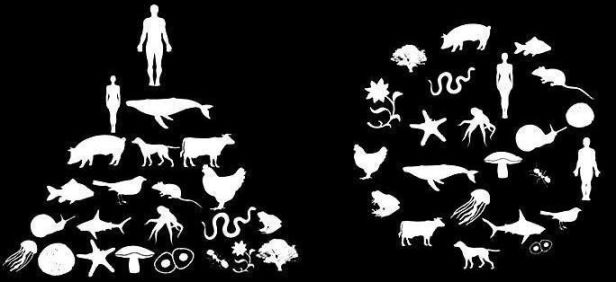Plants. Animals. The environment. Natural resources. None of it was created by God to be exploited by humanity.
God created us – man and woman – in his image; meaning we are to act accordingly. God also created everything else in this world. Coincidentally, everything else has the power to sustain our lives. God then declared that everything that he made was “very good.” Not some things, not most things, but everything. All of it. And it wasn’t just alright or ok, it was very good. Everything that God made was just as he intended it: very good.
God blessed them (humankind), and God said to them, “Be fruitful and multiply, and fill the earth and subdue it; and have dominion over the fish of the sea and over the birds of the air and over every living thing that moves upon the earth… God saw everything that he had made, and indeed, it was very good. – Genesis 1:28, 31
Pete’s Dragon (2016) is a whimsical family movie that reminds us of the importance of respecting – and not fearing – the life around us, especially that life that isn’t human. In this enjoyable Disney movie, Elliot is a lovable, green, hairy dragon living harmlessly in the forest of Millhaven who befriends an orphan, Pete. If we suspend our delineation between fiction and reality, we could state that Elliot, being a part of God’s creation (and not a product of CGI), is also “very good.”
 However, once Elliot is discovered by a band of local lumberjacks, Elliot’s peaceful existence becomes threatened. He becomes an object, a target for capture, with the goal of producing fame and fortune for his captors. For those looking to profit off of him, Elliot’s life becomes inconsequential. What the man wants, the man gets – or will take it, by force and violence if necessary. Unfortunately, this theme isn’t just played out in a happily-ever-after movie, but exists in our world, locally and abroad.
However, once Elliot is discovered by a band of local lumberjacks, Elliot’s peaceful existence becomes threatened. He becomes an object, a target for capture, with the goal of producing fame and fortune for his captors. For those looking to profit off of him, Elliot’s life becomes inconsequential. What the man wants, the man gets – or will take it, by force and violence if necessary. Unfortunately, this theme isn’t just played out in a happily-ever-after movie, but exists in our world, locally and abroad.
To satisfy the appetites for those that enjoy shark fin soup, each year 100 to 200 million sharks are slaughtered solely for their fins. To produce energy, entire mountains are erased from the horizon and local water systems are polluted as a result of mountaintop removal mining for coal. To make our lives more convenient, annually 8 million metric tons of plastic ends up in our oceans.
These are only a few examples of how we humans are anthropocentric. As “ordinary” citizens we may not deliberately or maliciously support these practices, with the intention of condoning the decimation of God’s creation. However, if we consume these products then we are at a minimum contributing to our society’s collective sin all in the name of supporting our preferred lifestyles. I’m not suggesting that we all ride bicycles, live off the grid, and only eat locally grown produce – all are good ideas though – but we do need to be cognizant of our daily practices and how they affect the world around us, including the products we buy and the companies that our dollars support.
The antagonist in Pete’s Dragon reminds us of the dangers viewing the life around us – which includes everything from the smallest of insects to the largest of whales (and even a mythological, green, flying beast) – as something that exists merely for humanity’s consumption. God created us to have “dominion” over the wildlife and the environment. Dominion doesn’t mean domination. Instead it means that we, as created beings ourselves by the Creator, are to be good stewards over all of life.
The LORD God took the man and put him in the garden of Eden to till and keep it. – Genesis 2:15
God made us to “till and keep the garden,” not fence it in and trash it. We are to express our gratitude by tenderly taking care of the beautiful life that has been entrusted to us. This includes practicing restraint in our consumeristic and materialistic tendencies. This means that just because we can do something, doesn’t necessarily mean that we should.

We exist not at the top of some hierarchical pyramid of life where we are permitted to decimate and dominate the life below us for our own disposal. Instead, we exist in a circle of life, where all of creation has value as we understand and appreciate that we are intricately and delicately interwoven into all of creation. Elliot reminds us to love and respect all of God’s creatures, including the environment and natural resources that support them. We’re all in this together.

“This means that just because we can do something, doesn’t necessarily mean that we should.”…. Indeed. 1 Corinthians 10:23 “All things are lawful, but not all things edify”.
Thanks for stopping by my blog today. Your comment was spot on…:)
LikeLike